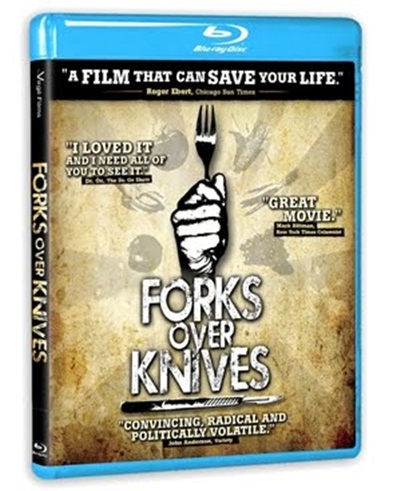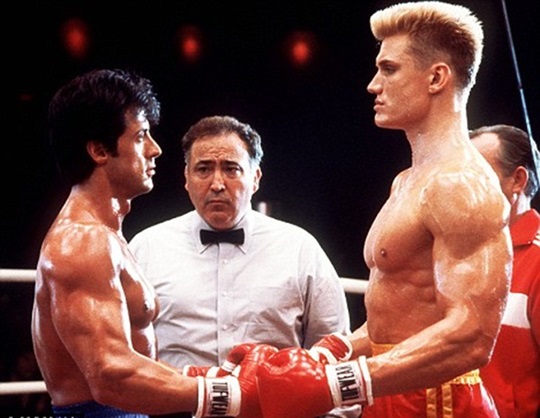
Because the world needs more misleading vegan propaganda.
For those of you not familiar with Denise Minger, she's an ex-vegan who last year took T. Colin Campbell's atrocious and terribly misleading The China Study book and debunked the living daylights out of it. As with my (and Chris Masterjohn's) critique of The China Study, the best Campbell could muster in response was to issue totally unfounded aspersions on her motives and to wank on and on about her allegedly inappropriate use of unadjusted correlations.
These were the very same unadjusted correlations, by the way, that Campbell was only too happy to cite in his book in support of his anti-animal food agenda. According to Campbell, the data from the China Study showed that: "People who ate the most animal-based foods got the most chronic disease . . . People who ate the most plant-based foods were the healthiest and tended to avoid chronic disease."
They're Campbell's own words folks, not the words of Masterjohn, Denise, or myself. Needless to say, it's extremely hypocritical for Campbell to gleefully cite unadjusted data in support of his own argument, but then get all hissy when others cite the very same data and show how it not only fails to support his argument but in many cases contradicts it.
I am the Almighty Guru, Kiss My Feet...or Kiss My Ass
Just what is it with these pompous old diet gurus? Is there a factory somewhere in the US Midwest pumping out aging jokers who earnestly seem to believe it’s their birthright to publish all manner of unsubstantiated dietary BS, yet remain totally beyond reproach? Do these automatons come equipped with a "defamatory hypocrite" option that automatically gets stuck in the "on" position every time they're confronted with valid criticism they can't factually refute?
It's ironic that the low-carb/meat-based diet crowd and the low-fat/plant food crowd spend so much time sledging each other, because the undeniable reality is both are remarkably similar; they both specialize in peddling utter nonsense. Both sides swear they and only they abide by nothing but the highest standards of science - then both turn around and spew forth rivers of nonsense.
The plain truth is both sides are overpopulated by vehement dogmatists incurably addicted to pushing their own agendas, reason and logic be damned. They both distort the science, selectively cite studies, misinterpret study findings, ignore contradictory evidence, and when all else fails, attack their opponents personally. For some sterling examples of this idiocy in action, you can read my critique of Campbell's The China Study here, and my destruction of the absurd claims of low-carb shill Dr Michael Eades here.
Anyways, back to Denise.
Unlike the smug, stale know-it-alls that inhabit Gurustan, this young lady is intelligent, unbiased, and really knows her stuff when it comes to picking apart hogwash dietary claims. Which is bad news for the creators of Forks over Knives, the vegan movement's latest piece of propaganda. This film features well known vegan, uh, excuse me, "plant-based diet" stalwarts, including Campbell, Caldwell Esselstyn, and John McDougall. It also features countless scientifically untenable claims that Denise proceeds to sink her teeth into, letting go only when she's completely ripped them to shreds.
Here are just a few highlights, along with some of my own observations added in for good measure:
Aflatoxin Shmoxin
One of Campbell's pivotal arguments in The China Study, repeated in Forks Over Knives, was research showing that rodents administered aflatoxin were more likely to get cancer if they ate high-protein (20%) diets. According to Campbell, the furry little buggers fed low-protein (5%) diets were less likely to develop malignant tumours. The protein in these diets was derived from casein, one of the two main protein fractions of dairy (whey being the other).
Sounds like a pretty damning indictment of high-protein diets, doesn't it? Well, at least if you're dumb enough to overlook the fact that virtually no human derives all his/her protein from casein. And that no human is a rat...physiologically speaking, that is.
And there's one other teeny weeny detail that Campbell conveniently neglected to mention: Of the twenty-two rats fed the low-protein diet, ten died by 6 months while the remainder died between 52 and 104 weeks. In contrast, all thirty rats fed the high protein diet survived for more than 1 year![1]
Oops.
And it doesn't end there.
In the original Indian study that inspired Campbell to adopt his animal protein-hating ways (Important Warning: stay a mile away from any joker whose current dietary beliefs arose from a single "Aha!" moment involving a dodgey study or diet book...) and in Campbell's own experiments, the doses of alflatoxin were absolutely ree-dee-que-less. The rats were administered super-duper-mega-massive doses of aflatoxin, the ingestion of which would literally be impossible in real live humans. Meaning that, regardless of protein intake, the experiments had essentially no real life relevance for us Homo sapiens. Except of course, for those capable of eating over 280,000 contaminated peanut butter sandwiches a day for four days straight. Heck, even Elvis in his dying days would have struggled to put away that much peanut butter.
Double oops.
When lower, more realistic doses of aflatoxin were given to monkeys eating either 5% or 20% casein[2], something interesting happened. Something that Campbell would probably prefer we didn't know:
"Monkeys on low protein diet surviving for 90 weeks or more show foci of preneoplastic lesions, whereas those on high protein diet reveal no such alterations at the corresponding time interval...It appears that in the simian model used by us, the liver injury caused by [aflatoxin] is accentuated by simultaneous restriction of dietary protein and in animals on such combined regimen preneoplastic lesions appear around 90 weeks of experiment. These observations suggest a synergism between protein calorie malnutrition and aflatoxin induced hepatocarcinogenesis and may explain the higher incidence of hepatocellular carcinoma in certain areas of the world where contamination of foods with aflatoxin and malnutrition are prevalent."
Oops to the power of infinity.
Correlation About-Face
Campbell gets his knickers in a right royal knot when his critics use unadjusted correlations to debunk his claims - but these are the same unadjusted correlations he himself used in the first instance to make his untenable claims! And as Denise points out, Campbell has a long history of using crude unadjusted data to support his case; he's published numerous papers during his 'distinguished' career using - you guessed it - unadjusted data to form dodgey conclusions on everything from heart disease to colorectal cancer incidence.
Planet Earth to T. Colin Campbell: If you insist it's poor science to arrive at conclusions based on crude unadjusted data, then here's a revolutionary idea: Cease and desist with your longstanding practice of arriving at conclusions based on unadjusted data!
I Once Tried Adjusting My Data, and I Didn't Like it
Thanks to her dogged detective work, Denise has uncovered a number of papers in which the China Study data was adjusted for a number of confounders. The reason Campbell has never discussed this adjusted data, even though he appears to harbour a rather strong albeit utterly self-contradictory disdain for unadjusted data?
Probably because it too fails to support his anti-animal food, anti-animal fat, anti-cholesterol, pro-plant food agenda. And unlike unadjusted data, adjusted data doesn't lend itself to Campbell's favored and convenient escape clause of "Oh, don't be so silly, that's the unadjusted data, my ignorant cutesie little meat and dairy industry-sponsored malevolents!"
Multiple regression analysis from this 1990 AJCN paper , co-authored by Campbell, showed:
“The consumption of wheat flour and salt … was positively correlated with all three diseases [cardiovascular disease, hypertensive heart disease, and stroke]“
Last time I checked, wheat was a plant, not an animal.
“Red blood cell total polyunsaturated fats, especially the n-6 fatty acids [you know, the ones found in abundance in plant food oils], were positively correlated with coronary heart disease and hypertensive heart disease”
“Within China neither plasma total cholesterol nor LDL cholesterol was associated with cardiovascular disease”
Yeah, real deadly stuff, that cholesterol.
This 1992 paper, co-authored by Campbell's research partner Jun-Shi Chen, included multivariate anlyses that found: “Consumption of green vegetables, rice, meat, and fish was associated with reduced [stomach cancer] mortality“
This of course doesn't fit too well with Campbell's pivotal "animal protein increases cancer" pet theory, so I'm guessing it was quietly relegated to the "Round File" during the writing of The China Study.

The Round File: A hot favourite with low-fat and low-carb authors alike for storing those pesky non-supportive studies. Out of sight, out of mind, baby!
China Study II: The Sequel
As Denise, Masterjohn and moi previously pointed out, the published data from the China Study completely contradicts Campbell's anti-animal, pro-plant food claims. Animal protein, fish protein, meat intake, saturated fat, and fat calories were all negatively associated with all-cause mortality in infants, children, teenagers and adults, although none of the associations reached statistical significance.
Among those aged 0-64, total protein returned a 29% negative association with overall mortality. In other words, increasing protein intake was assciated with a decreasing risk of death. This finding was statistically significant. In all age groups, egg consumption was negatively associated with all-cause mortality, with a statistically significant 43% decrease in overall mortality among those aged 0-64.
As for cancer, neither total protein, animal protein, fish protein, plant protein, meat intake, saturated fat, fat calories, eggs, nor milk demonstrated any statistically significant association with mortality from all cancers. Rice and green vegetables were statistically associated with reduced cancer mortality, as were the use of alcohol, home-made cigarettes, and total tobacco use. Funnily enough, Campbell doesn't promote booze or ciggies as Chinese cancer-preventives worthy of emulation, despite their statistically significant correlations.
All that was from the original China Study data. Since the publication of Campbell's The China Study book, data from China Study II has been released. The findings? I'll let Denise explain in her own words:
"Total plant food, percent of diet as plant protein, and wheat? All strongly positively associated with death from all medical causes, meaning that as intake of these things goes up, so does the risk of keeling over from something body-related. Total animal protein intake, percent of total calories as animal protein, egg intake, meat intake, red meat intake, fish intake, and consumption of dietary cholesterol? All strongly negatively associated with death from all medical causes, meaning that as intake of these foods goes up, medical mortality rates decline. Again, many of these associations may be—and probably are—totally meaningless, but they describe an important trend: For whatever reason, in China, the animal-food-eaters are living longer than their more plant-based counterparts."
Unlike Rocky I and II, the end results from China Study I and II are the same: animal foods are associated with a lower risk of overall mortality. Stay tuned for China Study III, where animal foods defend their title against a big, scary, steroid-enhanced turnip from Russia named Ivan Drago.
"On behalf of the world's vegetables...I must break you"
Caldwell Esselstyn
Unlike many of his media-hungry vegan peers, cardiologist Caldwell Esselstyn tends to keep a relatively low profile. I don't know much about the guy, but I get the impression he's a sincere bloke who's primary concern is helping his patients. But of course, that's no guarantee his dietary claims are based on sound science.
In 1995, Esselstyn published a paper in which he reported his intervention program helped a number of his patients arrest or even reverse coronary artery disease progression. This study, discussed in Forks Over Knives, is repeatedly used by the vegan/vegetarian crowd to sing the praises of a plant-based diet and remind us all for the umpteenth time that animal foods will choke our arteries with sticky sludge and cause our disgusted cardiac muscles to call a permanent stop-work meeting.
The trouble is, using a study involving multiple interventions as 'proof' of the effectiveness of a single intervention is a sterling example of inappropriate extrapolation. Esselstyn's intervention was multifactorial: each patient was assigned to a very low-fat lacto-vegetarian diet and cholesterol-lowering drugs, the most common protocol being cholestyramine, 4 g twice daily, and lovastatin, 40 mg to 60 mg daily (Esselstyn has since gone on to eschew the use of low-fat dairy). Esselstyn's strict dietary instructions meant forsaking all the refined processed garbage the patients were previously eating. So in in addition to eschewing meat, the patients also had to forgo all the nutrient-depleted, sugar/vegetable fat/additive-drenched junk they were previously scoffing down.
So let's take a look at the long list of potential confounders. As a result of the intervention, the patients lost weight. Weight loss itself, irrespective of the diet employed, can causes improvements in arterial function, regression of arterial thickness, and anti-platelet activity[3-6]. The one consistent theme is that the degree of IMT reduction is linked to the amount of weight lost, not the mode of diet followed.
Also, a regimen that involves a calorie reduction large enough to induce significant weight loss and that eliminates all the processed sugar-rich and vegetable fat-laden junk that typifies modern Western diets can be expected to have numerous cardiovascular benefits. As I explain at length in The Great Cholesterol Con, reducing the glycemic load of your diet and eliminating omega-6-rich vegetable oils can reduce the highly damaging process of glycation, reduce atherosclerotic plaque formation (and possibly rupture), reduce clotting tendencies, and improve arterial function.
But there is no law saying one must sentence themselves to a life of tofu and bean sprouts in order to achieve these effects, despite what Esselstyn and his fellow vegans in Forks Over Knives would have you believe.
And let's not forget Esselstyn's use of statin drugs. While I personally think statins are a garbage drug for reasons I have already elucidated several million times before (long time readers will know that was not an exaggeration), the fact remains they too have been shown to favorably affect the kind of IMT measurements employed in Esselstyn's study[7-9].
Let's also not forget that, similar to Ornish's Lifestyle trial, Esselstyn's study was a very small project with no randomized comparison group, and no mortality data. So we have no way of knowing how a comparison group receiving a similarly calorie- and crap-restricted omnivorous diet and the same medication regimen would have fared, and to what degree (if any) reductions in IMT and other risk factors would have eventually translated into actual mortality reductions. I'm not having a go at Ornish or Esselstyn here, as they at least made some effort to systematically tackle CVD in their patients and publish the findings. While the low-carb crowd loves to dump on these guys, the fact remains that folks like Dr. Robert Atkins and Dr. Michael Eades - both former practicing physicians who have publicly boasted about having had "thousands of patients" - never published so much as a single case study, despite having several decades to do so. What I do strongly oppose about the Ornish and Esselstyn studies is the way the results from these multifaceted interventions are disingenuously used to hype the alleged value of a single intervention. Which, of course, invariably happens to be a very low-fat, plant-based diet.
The War-Time Decrease in CVD + Shady Extrapolation = More BS Dogma
One of the favourite, and utterly retarded, attacks on animal foods is the "war-time rations" argument. During WWII, we are told, food rationing led to a decrease in animal protein and fat consumption, which in turn led to a substantial decline in heart disease. This argument is repeated in Forks Over Knives, using the specific example of Norway. The film even shows us a graph, complete with obligatory evil Nazi flag, plotting the trajectory of CVD that allegedly proves the animal food-CVD connection.
For crying out loud, just how dumb do these jokers think their viewers are? Wait, don't answer that...
There was war-time rationing in Europe alright, and it involved a whole bunch of foodstuffs along with animal products. So we're faced with the same shonky extrapolation issue I just discussed a few moments ago; namely, using a multifactorial intervention to disingenuously sing the praises of a single intervention.
In the case of Norway, here are some of the potentially confounding changes recorded in the literature:
- Cod liver oil became a standard addition to war-time diets...hmmm...more omega-3s, vitamin D and vitamin A! Gee, that wouldn't have had any possible confounding effect on CVD would it, now? Naaah...
- Fish intake increased greatly (those omega-3's again...)
- Intake of skim milk was higher throughout the war than before it.
- Added fats like margarine and butter declined.
- Intake of sugar declined markedly.
- Overall calorie intake went down. Anyone down for some weight loss-induced reductions in CVD?
And to top it all off, Denise reminds us that a rise in infectious disease mortality may in fact be the real reason behind the wartime drop in CVD deaths. It's pretty safe to say you won't die of CHD if tuberculosis kills you first...
Conclusion
This post was meant to be a quick paragraph or two giving a heads up to Denise's excellent post, followed by a link to her site. Guess I kinda got carried away as my inner research geek got the better of me and started pulling up many of the studies Denise cited, along with a few others that I came across as I Pubmedded along in my distracted state. My inner geek also couldn't resist adding his ten cents worth, but I highly recommend you read Denise's much lengthier critique in its entirety. For those of you who give a Brussels sprout about the truth and enjoy reading thorough and carefully researched demolitions of dogmatic dietary BS, it's a pearler:
http://rawfoodsos.com/2011/09/22/forks-over-knives-is-the-science-legit-a-review-and-critique/
Great stuff. No doubt T. Colin Campbell will disagree, and will proceed to dismiss her latest post with condescending terms such as "cutesy" (seriously, that's one of the criticisms he leveled at her original China Study review). Yeah, shame on you Denise for injecting a little personality into your writing...and feminine personality at that! Don't you know science is the preserve of grumpy old men, and that scientific discussion must always be monotone and boring, damnit?!
Denise Minger, stand up and take a bow. Just watch out for rotten zucchinis being hurled by angry vegans...
Financial Disclosure/Disclaimer
One of the knee-jerk responses exhibited by angry vegans upon reading something critical of their beloved diet is to accuse the author - without any evidence whatsoever - of being a paid stooge for the meat/dairy/egg industries. I take extreme offense to any and all such accusations upon my unimpeachable character - I would not sell my soul for all the money in the world. Maybe all the money in the world and a mint condition NOS SE Racing PK Ripper from the early eighties ... then I'd be tempted. Otherwise, I'm not for sale at any price, baby.
There are some things in life even the most strong-willed and principled man cannot resist. The girl with the big socks is kinda cute too.
Secondly, have you accusatory jokers stopped to consider that the meat/dairy/egg industries couldn't give a rat's ass about some Internet writer from Australia? Picture this scene at a meat industry group board meeting:
"Gentlemen of the board, we shall now address the issue of lobbying. Shall we continue this coming year to spend millions successfully lobbying the government for favourable regulations and subsidies, or shall we instead give the money to some guy from Australia who has absolutely no control over these things? All in favour of the latter, raise your hands in the air and wave them like you just don't care!!"
Grow a brain, folks...
---
Anthony Colpo is an independent researcher, physical conditioning specialist, and author of the groundbreaking books The Fat Loss Bible, The Great Cholesterol Con
and Whole Grains, Empty Promises.
---
References
- Madhavan TV, Gopalan C. The effect of dietary protein on carcinogenesis of aflatoxin. Archives of Pathology, Feb, 1968; 85 (2): 133-137.
- Mathur M, Nayak NC. Effect of Low Protein Diet on Low Dose Chronic Aflatoxin B1 Induced Hepatic Injury in Rhesus Monkeys. Toxin Reviews, 1989; 8 (1-2): 265-273.
- Shai I, et al. Dietary Intervention to Reverse Carotid Atherosclerosis. Circulation. 2010; 121: 1200-1208.
- Iannuzzi A, et al. Comparison of two diets of varying glycemic index on carotid subclinical atherosclerosis in obese children. Heart Vessels, Nov, 2009; 24 (6): 419-424.
- Mavri A, et al. Impact of weight reduction on early carotid atherosclerosis in obese premenopausal women. Obesity Research, Sep, 2001; 9 (9): 511-516.
- Coban E, et al. The effect of weight loss on the mean platelet volume in obese patients. Platelets, May, 2007; 18 (3): 212-216.
- Kang S, et al. Effects of statin therapy on the progression of carotid atherosclerosis: a systematic review and meta-analysis. Atherosclerosis, 2004; 177 (2): 433-442.
- Masoura C, et al. Arterial endothelial function and wall thickness in familial hypercholesterolemia and familial combined hyperlipidemia and the effect of statins. A systematic review and meta-analysis. Atherosclerosis. 2011 Jan; 214 (1): 129-138.
- Riccioni G, et al. One-year treatment with rosuvastatin reduces intima-media thickness in 45 hypercholesterolemic subjects with asymptomatic carotid artery disease. Pharmacology. 2010; 85 (2): 63-67.
—
Copyright © Anthony Colpo.
The Mandatory “I Ain’t Your Mama, So Think For Yourself and Take Responsibility for Your Own Actions” Disclaimer: All content on this web site is provided for information and education purposes only. Individuals wishing to make changes to their dietary, lifestyle, exercise or medication regimens should do so in conjunction with a competent, knowledgeable and empathetic medical professional. Anyone who chooses to apply the information on this web site does so of their own volition and their own risk. The owner and contributors to this site accept no responsibility or liability whatsoever for any harm, real or imagined, from the use or dissemination of information contained on this site. If these conditions are not agreeable to the reader, he/she is advised to leave this site immediately.

